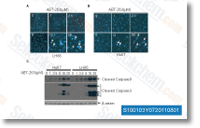Figure 7A compares the expression of those genes during the circumvallate and foliate epithelia from PBS and LPS handled mice. Only the genes that dis played four fold decrease in expression in LPS samples are labeled. Ki67. E2F1. Chek1. Brca1. and cyclin B2. Added File three lists every one of the genes examined by PCR array analysis. The decreased expression of Ki67 by LPS is consistent using the consequence shown in Figure 6A, which was based on RT PCR experiments using independently created primers. With the other 4 genes, Chek1 and Brca1 are involved in DNA damage response and restore. whereas Cyclin B2 and E2F1 right regulate cell cycle progression. Cyclin B2, one among the three mammalian B kind cyclins, is surely an interacting partner for cyclin depen dent kinase 1. Cdk1 cyclin B2 complexes are vital for your reorganization of your Golgi apparatus during mitosis.
E2F1 is a transcription factor that reg ulates cell cycle progression by activating the transcrip tion of many genes expected for cell division. Decreased expression of cyclin B2 and E2F1 may well contrib ute to your suppression of taste progenitor cell prolifera tion by LPS. To validate the information created by the PCR array experiment, we carried out real time RT PCR reactions for cyclin B2 and E2F1 using independently you can look here developed primers. The results showed the expression of those two essential cell cycle regulators was certainly inhibited by LPS. Discussion Inflammation and taste progenitor cell proliferation Inflammation is actually a complex process involving the inter play of many things such as cytokines and chemokines. The results of irritation on cell proliferation are mul tifaceted, with various outcomes according to cell sorts, illness designs, and the inflammatory variables concerned.
In adult brain hippocampus, LPS induced irritation is detrimental inhibitor tsa inhibitor to neurogenesis, whereas deficiency of TLR4, the receptor for LPS, outcomes in enhanced progenitor cell proliferation and neuronal differentiation. However, inflammation induced by ischemia and mechanical injury can stimulate proliferation and advertise neurogenesis. Similarly, even though IL 6 is proven to inhibit neural progenitor cell proliferation and newborn cell survival, TNF can either impair proliferation and survival or help neurogene sis, depending on the expression of TNF receptors and also the designs employed. The mechanisms by which inflammation mediates these various effects on cell proliferation and survival are  largely unknown. Our results showed that LPS induced irritation stimulated the expression of many inflammatory cytok ines in taste papillae. LPS treatment inhibited proliferation of taste progenitor cells and decreased the quantity of newborn cells coming into taste buds.
largely unknown. Our results showed that LPS induced irritation stimulated the expression of many inflammatory cytok ines in taste papillae. LPS treatment inhibited proliferation of taste progenitor cells and decreased the quantity of newborn cells coming into taste buds.
Peptide Solubility
The former are water-soluble and act on the surface of target cells via second messengers.
